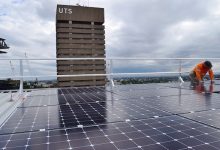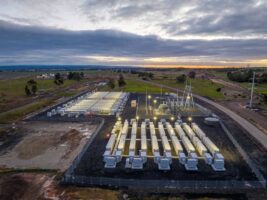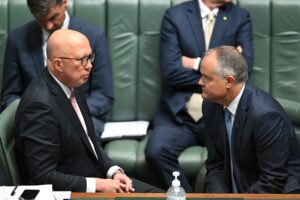The University of Technology Sydney has signed its third renewable energy power purchase agreement, this time for the output of the 32MW Walgett Solar Farm in northern New South Wales.
The University said on Tuesday that it would purchase the equivalent of half its annual electricity demand from the solar farm, through a deal that will kick-start construction of the $40 million project.
The Walgett solar farm is being developed by NSW-based renewables outfit Epuron, with construction expected to begin soon and first generation to commence in mid-2019. Once complete it will supply around 63,000MWh a year of electricity – enough to power 9,600 homes.
The large-scale solar project was one of four approved for development by the state government in July, including the 105MW Nevertire, which is also being developed by Epruon, in the town of the same name.
“For our renewable projects to be able to attract finance and get built, it’s crucial to find suitable partners to become committed customers and provide certainty,” said Epuron Director Martin Poole.
For UTS, the agreement offers a competitive fixed ongoing energy cost, and builds on an impressive record of sustainable sourcing of power – including what it claims as Australia’s first offsite solar corporate direct PPA in 2015.
In that deal, the UTS agreed to source 15 per cent of the annual electricity consumption of the Dr Chau Chak Wing Building from a solar farm in Singleton, north of Sydney.
A second PPA with a solar farm in Orange, NSW, to supply electricity to the Vicki Sara Building. UTS has also installed six solar systems on its building rooftops, and has plans for solar development in 2019 and beyond.
“Walgett Solar Farm is a fantastic project. The area has high levels of sun exposure, even in winter, so it will generate consistently across the year,” said UTS Green Infrastructure Project Manager Jonathan Prendergast.
“While much of Australia’s rooftop solar capacity is on houses, and therefore in population centres, projects like Walgett Solar Farm spread our solar capacity geographically, providing more consistent solar generation that’s less subject to local weather patterns.”
“By entering into a long-term agreement, UTS will better manage its long-term energy costs and cap its exposure to price rises,” he said.
“We are committed to finding sustainable solutions to reduce our environmental impact,” said UTS Vice-Chancellor Attila Brungs.
“But we don’t just want to create improvement for ourselves, we want to change whole systems to enable others to also improve their sustainability.
“UTS has spent the last couple of years researching and creating an effective energy model to help reduce emissions while also supporting the continued growth of the renewable energy sector.
“We are proud of the systemic changes that we have made as this model can be adopted by other universities and organisations to create more sustainable solutions to energy usage.”
This story was first published on RE’s sister site, One Step Off The Grid.










